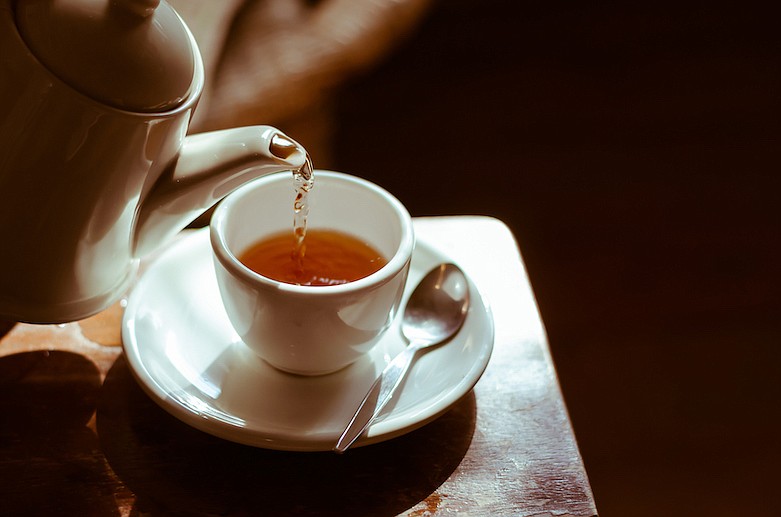In the darkest days of World War II, as the Axis powers pressed toward smashing the hopes of democracy, the British government bought all the tea in the free world.
Agents of the crown cornered every available pound of tea, from every market except Japan, for distribution to troops on the front lines and for rationing to civilians at home. War-weary citizens sharing cups of hot tea, the government of Winston Churchill reasoned, would not only experience daily exercises in national unity across the class-conscious and tea-obsessed British realm, but also derive a practical benefit, because of tea's reputation for restoring calm.
There's science in the latter point, actually: Tea contains an amino acid, theanine, that is known to reduce stress. Combine that with the calming ritual of preparing tea - steeped and then stirred, with milk or black, sugar or lemon - and you understand that those clever English had a prescription for coping that didn't depend on scarce pharmaceuticals or military hardware.
Maybe there's a comparable salve for a hurting America in the current crisis, a pandemic that experts warn could disrupt lives even more significantly than global war did eight decades ago. Or perhaps in the face of that threat, we could start with embracing character traits that are represented, conveniently enough, in the acronym TEA: Tenacity. Empathy. Agility.
Considered in that way, TEA can help us, too, through looming losses and sorrows, in what promises to be a long struggle with the coronavirus.
Tenacity is a word that was heard more in the middle of the 19th century than now, maybe because pre-Industrial Revolution life was harder than it has been for us in recent years. It's a term that suggests persistence and firmness. It came to our English language from the Latin word tenax, which means "holding fast."
During the weeks and months to come, we will need to tenaciously hold to isolation and social-distancing guidelines, even when better weather beckons us to share experiences outdoors, or when loneliness makes dangerous contact with others so enticing. We will need tenacity to keep our wits when financial stress undermines our emotional stability.
Empathy can help keep us on course in the face of such challenges. Recognizing the difficulties others are facing produces a sense of connection that can sustain us in a time when we are physically isolated.
There's actually a physiological benefit to empathy: Being empathetic requires us to draw on our skills for what psychologists call emotional regulation, and doing that controls our stress-response hormones. That can keep our blood pressure from spiking and even help us to sleep better at night.
It's not easy to reach out and help others when your own life is upended. That requires a kind of emotional agility that is admittedly rare, but which can ultimately protect us in adversity. Awful experiences likely await us all - financial uncertainty, the death of loved ones, loss of experiences we have cherished. Yet it will do us no good to curse the circumstances.
That's not to say that we shouldn't hold to account public officials whose failure to act left us more vulnerable to this plague. But there's a difference between rationalizing away reality, which is the habit of fools, and being hooked by anger, which can threaten our own emotional survival.
After all, we have only a certain amount of gray matter in our heads, and we will need to use those cognitive resources for our ultimate recovery from these arduous times. It would be a shame to waste our brain power on those who don't deserve such attention.
Tenacity, empathy and agility: We need them all just now. But first, brew up a pot of tea, and let's see if it doesn't help us cope.
Tribune Content Agency
